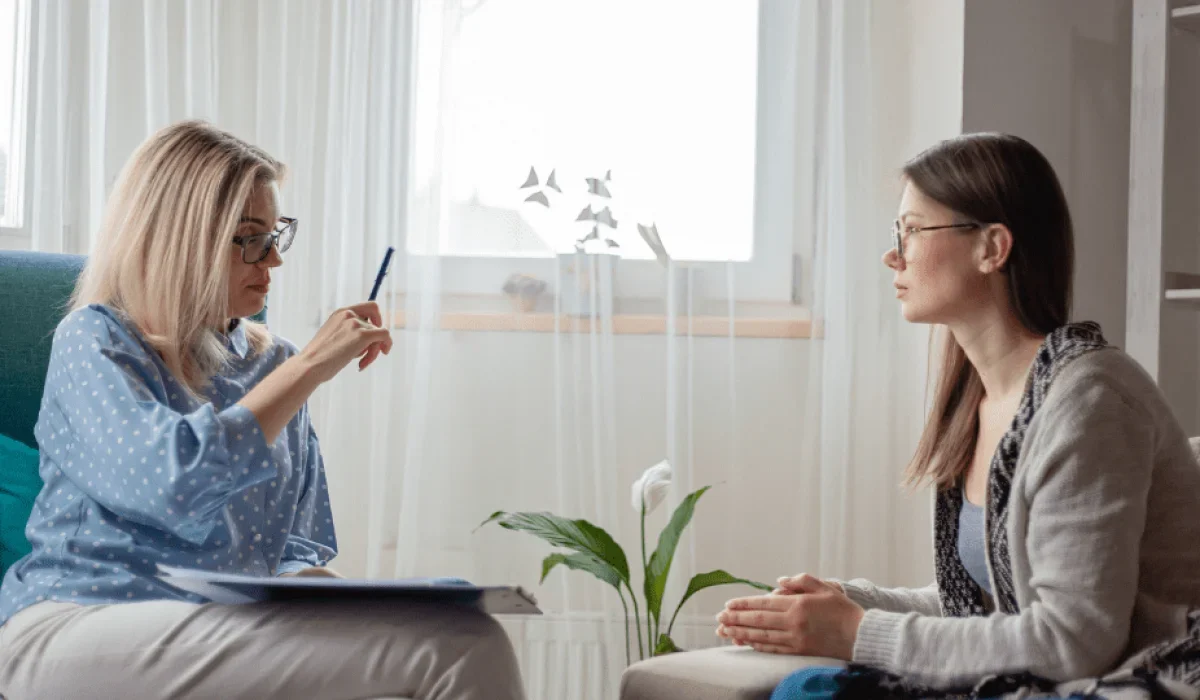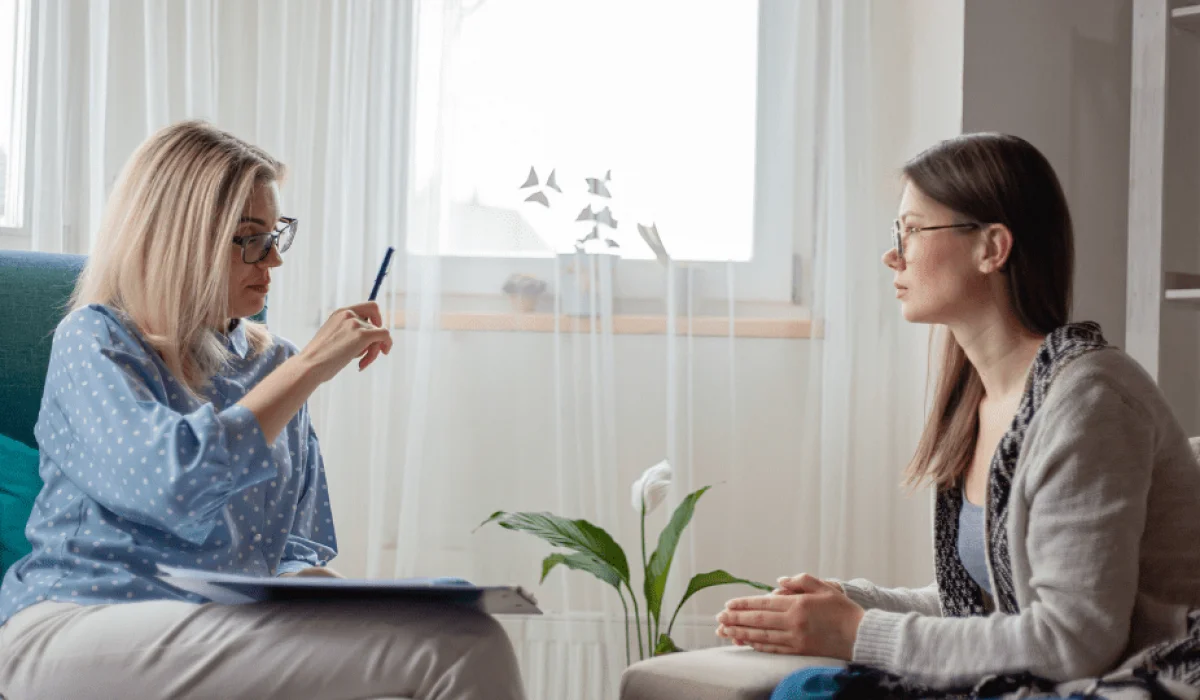Embarking on the journey of counseling can be both exciting and nerve-wracking. Taking the step to seek professional help is a commendable decision, but it’s natural to feel a mix of emotions, including curiosity and apprehension, as you prepare for your first counseling session.
In this blog post, we’ll delve into what you can expect from that initial encounter with a counselor, demystifying the process and offering insights to help you navigate this transformative experience.

Understanding the Purpose of Your First Counseling Session
Your first counseling session serves as an introduction, creating a foundation for the therapeutic relationship between you and your counselor. It is a collaborative effort, where you and the counselor work together to define your goals, establish trust, and set the tone for future sessions.
- Building Rapport and Trust
Establishing trust is crucial in any counseling relationship. Your counselor will likely start by creating a warm and non-judgmental atmosphere, allowing you to feel comfortable and safe sharing your thoughts and feelings. This initial connection lays the groundwork for open communication and collaboration throughout the therapeutic process.
- Intake and Assessment
Your counselor will gather essential information about you during the first session. This may include your personal history, current challenges, and any relevant background information. Be prepared to discuss your reasons for seeking counseling and your expectations for the process. This information helps the counselor understand your unique situation and tailor their approach to meet your specific needs.
- Defining Goals and Expectations
Collaboratively setting goals is a fundamental aspect of counseling. Your counselor will work with you to identify areas of concern and establish realistic and achievable objectives. This process helps create a roadmap for your counseling journey, providing direction and clarity about the steps you will take together.
- Exploring Counseling Approaches
Counselors employ various therapeutic approaches, and your first session may involve a discussion about which methods align best with your preferences and needs. This collaborative exploration ensures that the counseling process is tailored to suit your personality and comfort level.
Navigating the Emotional Landscape of Your First Session
It’s natural to experience a range of emotions during your first counseling session. From anticipation to vulnerability, each emotion is a valid part of the therapeutic process. Here’s what you might encounter:
1. Nervousness and Uncertainty
Feeling nervous is entirely normal when entering a new environment, especially one where you’ll be discussing personal matters. Your counselor is aware of this and will likely take the time to help ease any initial apprehension you may have.
2. Relief and Validation
Sharing your thoughts and concerns with a trained professional can bring a sense of relief. The validation and empathy offered by your counselor can help you feel heard and understood, marking the beginning of the healing process.
3. Setting Realistic Expectations
It’s essential to approach your first counseling session with realistic expectations. While it can be a transformative experience, it may take time to see significant changes. Understanding that counseling is a gradual process can help manage expectations and foster a commitment to personal growth.
The Importance of Active Participation
Your involvement in the counseling process is integral to its success. Actively participating in sessions, completing any suggested tasks or exercises between sessions, and being open to self-reflection are key components of your therapeutic journey.
- Open Communication
Honest and open communication is the cornerstone of effective counseling. Your counselor will encourage you to express your thoughts and emotions openly, providing a safe space for you to explore and understand yourself better.
- Willingness to Explore
Counseling often involves exploring deep-rooted beliefs, patterns, and emotions. Your willingness to engage in this self-exploration, even if it feels uncomfortable at times, is a courageous step towards personal growth and positive change.
- Commitment to the Process
Consistency is vital in counseling. While breakthroughs can occur in a single session, lasting change often requires ongoing commitment. Your counselor will work with you to establish a schedule that aligns with your needs and supports your journey toward personal well-being.

Addressing Common Concerns About the First Counseling Session
It’s normal to have reservations or concerns before your first counseling session. Let’s address some common worries and misconceptions:
1. Fear of Judgment
Understand that counselors are trained to be non-judgmental and empathetic. They are there to support you without passing judgment on your experiences or choices.
2. Uncertainty About What to Say
You don’t need to have everything figured out. Your counselor will guide the conversation, asking questions to help you explore your thoughts and feelings. It’s okay not to have all the answers right away.
3. Apprehension About Emotional Expression
Expressing your emotions can be challenging, but it’s a crucial aspect of the counseling process. Your counselor is there to help you navigate and understand your feelings in a supportive environment.
Moving Forward: What Comes After Your First Counseling Session
After your initial session, it’s common to experience a mix of emotions. You may feel a sense of relief, accomplishment, or even vulnerability. Here’s what you can expect in the sessions that follow:
- Continued Exploration
Subsequent sessions will involve a deeper exploration of the issues discussed in the first session. Your counselor will guide you through a process of self-discovery, helping you gain insights and develop coping strategies.
- Feedback and Reflection
Your counselor may provide feedback based on your discussions, offering insights and perspectives that can enhance your understanding of yourself and your challenges. Reflecting on this feedback between sessions can contribute to your overall growth.
- Adjustments and Flexibility
Counseling is a dynamic process, and adjustments may be necessary along the way. If you find that certain approaches are not resonating with you, communicate openly with your counselor to explore alternative strategies.
Conclusion
Your first counseling session marks the beginning of a transformative journey towards self-discovery and personal growth. By understanding the purpose of this initial encounter, managing expectations, actively participating in the process, and addressing common concerns, you can embark on your counseling journey with confidence.
Remember, seeking help is a courageous step, and your counselor is there to support you every step of the way. Embrace the opportunity to explore, learn, and embark on a path towards positive change and emotional well-being.


